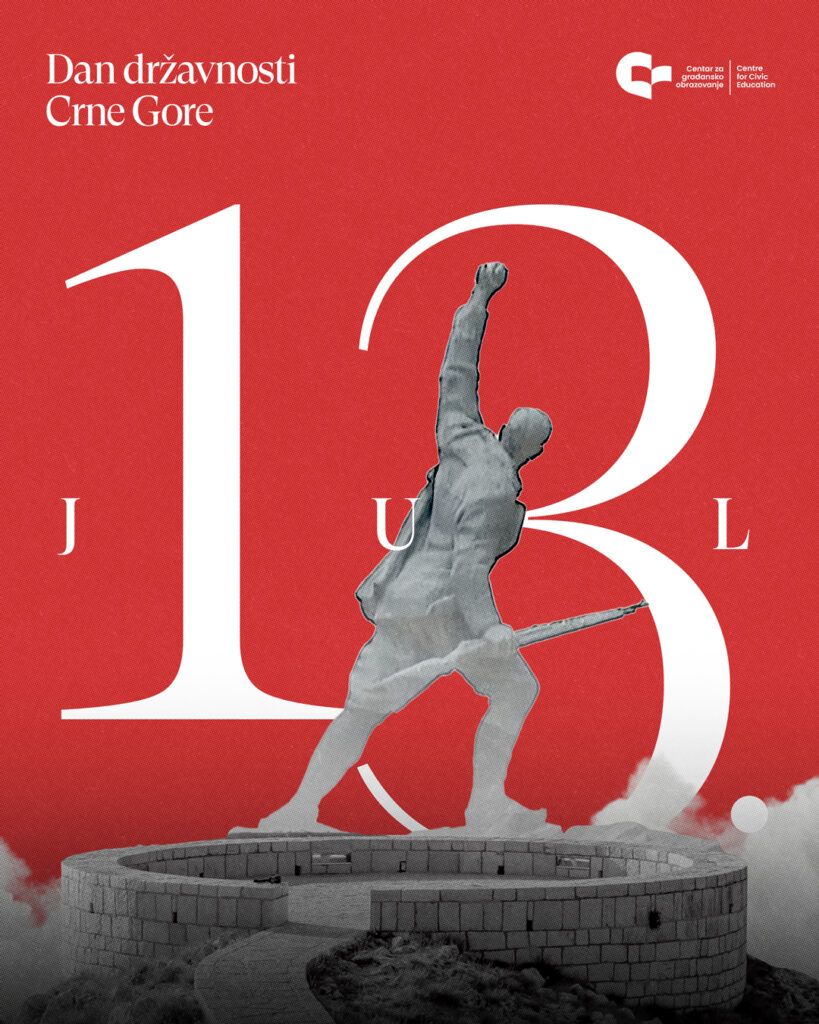Centre for Civic Education (CCE) congratulates all citizens of Montenegro the Statehood Day – 13 July – and also calls for the defense of the freedoms that 13 July brought us.
This date is marked by two decisive events in Montenegrin history.
The first is the Berlin Congress of 1878, at which Montenegro became an internationally recognised state – which it de facto already was. It was a peace congress of the great powers at the time (Germany, Austria-Hungary, Great Britain, France, Italy, Russia, and Turkey), which lasted from 13 June to 13 July, but only began addressing the Montenegrin question on 1 July. The delegates of Montenegro were the President of the Senate, Duke Božo Petrović, and the Head of the Foreign Affairs Office, Duke Stanko Radonjić. At the Berlin Congress, in addition to Montenegro, Serbia and Romania also secured their independence.
The second, equally important, 13 July occurred in 1941. At that time, Montenegro was disenfranchised and erased from the map of European states and nations. Just one day after the Petrovdanski Assembly, held in the Zeta Home by the occupying Italian fascist authorities and their collaborators, Montenegro on 13 July 1941 staged the first mass uprising against fascism in Europe. Jean-Paul Sartre described that event as “a magnificent moment in the European history of the twentieth century”, noting that it “can serve as a source of pride for the peoples of Europe”. During World War II, Montenegro contributed 257 national heroes of the People’s Liberation Struggle, including eight women. After the war, it partially regained its lost sovereignty as one of the six Yugoslav republics. Former French President François Mitterrand singled out the 13 July Uprising as the most significant event of World War II.
These two historical events bear witness to the fact that the desire for freedom is the most important cohesive element of Montenegrin identity and being. The national holiday of 13 July obliges us to preserve the spirit of liberty that once inspired admiration across Europe.
Unfortunately, we mark this 13 July in a Montenegro where those freedoms are being restricted or revoked, where there is institutional silence in the face of historical revisionism, and where collaborators with occupiers are equated with the brave fighters against fascism. Our attitude towards our past is also our attitude towards our future.
Freedom of choice, freedom of thought and expression, freedom of assembly and association, and freedom from discrimination are just some of the fundamental values that are under threat, and which we must defend today in order for Montenegro to be a free and European country.
The Montenegro we owe to future generations is a free and democratic state of all its citizens – a state where differences are celebrated, not punished. Montenegro must not become what others have designed for it, but what we ourselves have fought for and defended.
Sara Čabarkapa, Active Citizenship Programme Coordinator

